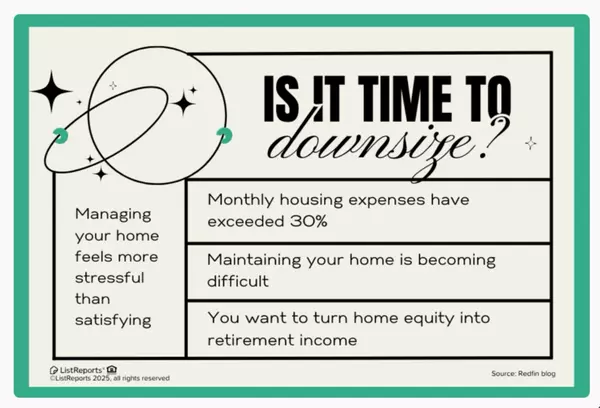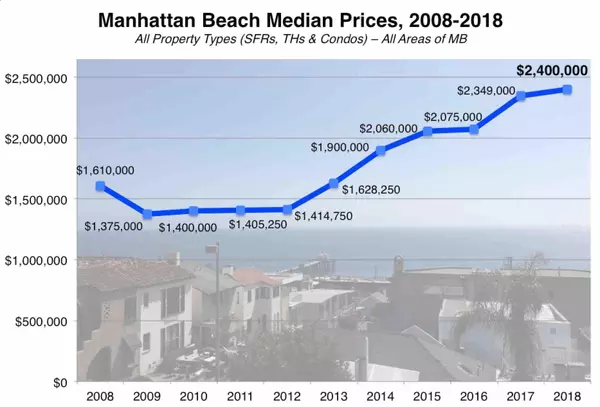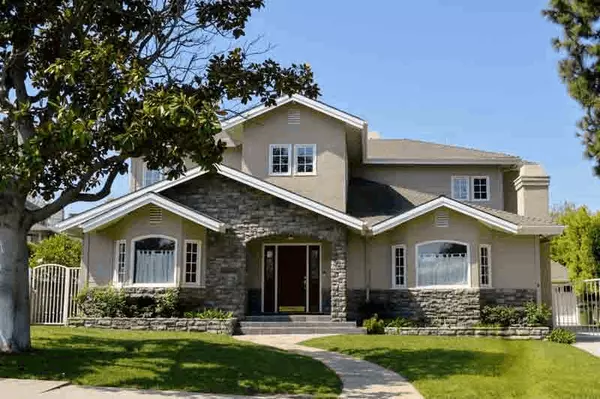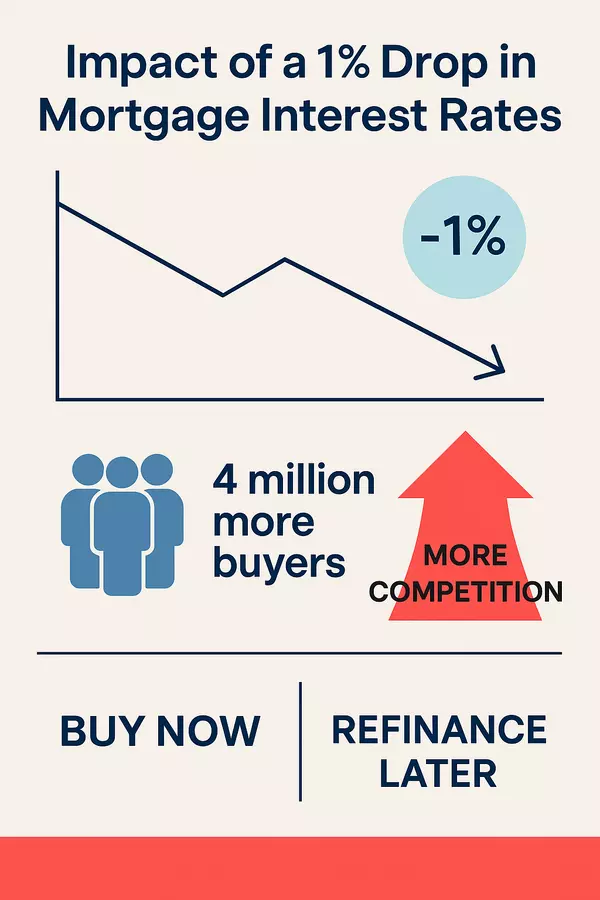How to Tell If a Home Is Overpriced—Before You Fall for It

Blog Title: How to Tell If a Home Is Overpriced—Before You Fall for It
Blog Post Body:
Spring 2025 is an exciting time to house hunt: more listings hit the market, flowers are blooming, and buyers are eager to find their dream home. But amid the optimism of the spring real estate season, it’s important to keep a clear head. One common real estate red flag to watch for is an overpriced home. Falling in love with a house that’s priced way above its value can lead to heartache (and financial strain) later. In fact, a recent report found over half of U.S. home listings were sitting unsold for 60+ days, largely because buyers perceived them as overpriced . So how can you spot the signs of an overpriced home before you get attached? Below are some practical home valuation tips to help you avoid paying too much for a house.
1. The Price Is Out of Line with Comparable Homes
One of the clearest overpriced home signs is a listing price that doesn’t match the local market. How to know if a house is overpriced? Start by comparing it to recent sales of similar homes (known as “comps”). A home’s price should reflect the local market, not just what the seller wants to get . If all the similar houses in the neighborhood sold for significantly less, or if the price per square foot is much higher than nearby homes, that’s a red flag. Likewise, if the house is priced like a fully renovated model but still needs major updates, you’re looking at a potential overpriced listing . Tip: Ask your agent for a comparative market analysis (CMA) or use online home valuation tools as home valuation tips to gauge a fair price range. This research will help you avoid overpaying for a house by identifying what “market value” truly is.
2. The Listing Has Been on the Market Too Long
In a brisk spring market, well-priced homes tend to get snatched up quickly. If a house has been listed for months with no sale, it could be priced too high. Buyers are essentially voting with their wallets — and rejecting the price. Overpriced homes can linger on the market for 60 days, 90 days, or even longer while properly priced homes in good condition fly off in a matter of days . Keep an eye on the listing’s history. Has it had multiple price reductions? Numerous small cuts or a “Price Reduced” sign often mean the seller started too high and is slowly adjusting to reality. A large pileup of unsold homes nationwide in late 2024 was attributed to this issue, with 54.5% of listings lingering 60+ days (a four-year high) because they began overpriced . If a home you love has been sitting while others sell, ask yourself if the listing price is the culprit. Sometimes, waiting it out could even work in your favor — the longer it sits, the more willing the seller might be to negotiate a lower price.
3. Low Buyer Interest and Activity
Another real estate red flag is when a listing isn’t generating much buzz. In a competitive spring market, a fairly priced home usually attracts buyer interest — showings, inquiries, and maybe even multiple offers. If instead you find crickets(few showings, no offers after several weeks, sparse attendance at open houses), the issue might be the price. Buyers may be overlooking that home while others in the area (with similar features) are selling quickly, which is a strong sign it’s priced too high . You can often gauge interest by asking the listing agent (or your buyer’s agent) how much activity there’s been. While they may not give you exact details, you can pick up hints. No buzz generally means buyers and their agents think the home isn’t worth what’s being asked. This is one of those overpriced home signs that’s easy to miss if you’re only looking at the house itself — so be sure to consider the market reaction to the home. If nobody else seems interested, you might be able to negotiate a better deal, or you might decide to walk away if the seller won’t budge. Either way, recognizing this red flag can help you avoid getting swept up in a bad bargain.
4. It Won’t Appraise at That Price
Let’s say you do decide to make an offer on a house — only for the bank’s appraisal to come in tens of thousands of dollars lower than the agreed price. That’s a glaring sign the house was overpriced to begin with. Lenders hire appraisers to objectively assess the home’s value, and they use recent sales data and the home’s features to do so. If the appraisal value is lower than your purchase price, you now have concrete evidence that you were about to overpay . In Spring 2025, with markets stabilizing in many areas, appraisals are catching up to reality. As a buyer, you generally have options here: you can ask the seller to lower the price to match the appraised value, bring extra cash to cover the difference (not ideal!), or walk away if you have an appraisal contingency. Sellers who insist their home is worth more than the appraisal… well, they may not be ready to face reality. This is where it’s key to have a good agent and perhaps a bit of emotional distance. Remember, no matter how much you adore the home, a bank won’t lend more than it’s worth. Don’t let love for a house lure you into paying more than a home is worth. It’s better to let this one go than to stretch yourself on an overpriced purchase.
5. The Price Doesn’t Match the Home’s Condition or Features
Sometimes a home carries a high price tag without the goods to back it up. Maybe the photos looked gorgeous, but in person you notice the kitchen is straight out of the 90s, or the roof and AC are on their last legs. An overpriced homeoften has a mismatch between price and condition. Ask yourself: Does this price make sense given the home’s true condition and features? Sellers sometimes assume every renovation or unique feature adds dollar-for-dollar value, but that’s not always true . For example, a custom built-in aquarium or a fancy chandelier might mean a lot to the seller, but buyers might not care — and certainly won’t pay a premium for it. On the flip side, if the home is overly personalized(say, bold paint colors or very specific design choices) or lacks upgrades that other homes in that price range have, its price should be lower, not higher. Cosmetics aside, pay attention to functional items: old appliances, outdated electrical or plumbing, or any deferred maintenance. If a house needs $50k of work but is priced as though it were move-in ready, you’re looking at an inflated price. Don’t hesitate to ask your inspector or contractor for rough estimates of what repairs/updates would cost. You can use those as leverage to negotiate the price down, or decide to pass if the seller isn’t realistic. A fair price should reflect the home as it is today, not what it could be in some perfect world.
6. Your Agent (and Your Gut) Say It’s Overpriced
Finally, trust the guidance of an experienced local agent and your own instincts. A warm, knowledgeable agent wants the best for you and won’t want you to overpay. If your real estate agent — someone who sees home prices every day — hints that a listing seems high, take that seriously. They can share real estate red flags and insights from comparable sales that you might not have access to. Similarly, listen to your gut. Does the price feel unreasonable for what you’re getting? It’s normal to feel a bit anxious in a competitive market, but if something in you is saying “this seems overpriced,” pause and investigate. Ask questions like: Why do you think the seller priced it this way? Are they testing the market, or did they have a strong rationale? Sometimes, a seller might be attached to a certain number due to emotional reasons (like their memories in the home) or misinformation. That’s not your burden to take on. Stay friendly but objective. You can express your interest in the home while making a data-backed case for a lower offer. If it’s truly meant to be and the seller is motivated, they’ll come around. And if not, there will be other homes. Remember, it’s better to lose a negotiation than to overpay by tens of thousands and regret it later.
Wrapping Up – We’re Here to Help, No Pressure
Navigating the Spring 2025 market, you’re bound to see some wonderful homes — and a few overpriced ones too. The key is spotting those overpriced home signs early so you can make an informed decision. With these tips, you’ll be well equipped to avoid paying too much for a house by recognizing when a price just isn’t justified. If you ever have doubts about a listing’s price, I’m here as a resource. No pressure, no strings attached – feel free to reach out and I’d be happy to review the listing or provide a quick pricing analysis for you. As a local agent who cares, my goal is to help you find the right home at the right price. With knowledge and the right support, you can enter this spring market confidently, knowing you won’t fall for an overpriced beauty. Happy house hunting, and remember: I’m just a call or email away if you have questions!
Categories
Recent Posts












